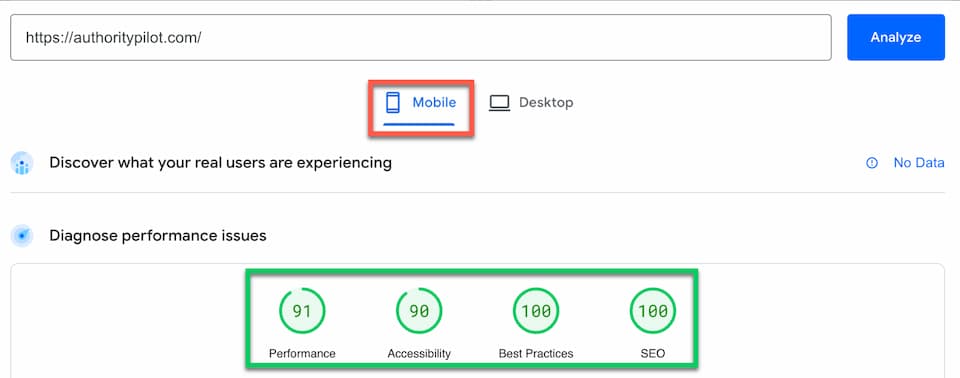
Marketing managers often struggle when it comes to Search Engine Optimization (SEO). Yet staying current and competitive demands more than a passing knowledge. SEO is a strategic tool that can significantly impact a company’s online presence and bottom line. It has evolved from a mysterious, dark art to both respected and essential for businesses to thrive online. This article aims to demystify insights for SEO marketing managers by providing five key insights that are essential for online success.
1. SEO Foundations
On-page SEO, off-page SEO, and technical SEO collectively ensure a website’s visibility, content quality, user-friendliness, and authority. They are vital for ranking high on search engines, attracting traffic, and engaging users effectively.
Let’s have a closer look at what each entails:
On-Page SEO
On-page SEO is the craft of optimizing the content and elements directly on your website to improve its search engine visibility. It’s about fine-tuning your website’s individual pages to enhance their visibility on search engines and, in turn, attract more organic traffic. On-page SEO encompasses a myriad of strategies, including keyword optimization, meta tags, content quality, and user-friendliness, all of which aim to provide the best possible experience for your visitors.
There are a number of valuable benefits of on-page SEO. First and foremost, it’s your gateway to higher search engine rankings. By optimizing your website’s content and structure, you improve your chances of appearing on the coveted first page of search results. But it doesn’t stop there. On-page SEO also ensures that your website offers a seamless, informative, and engaging experience to your audience, ultimately resulting in longer visitor durations and reduced bounce rates. It’s about creating a win-win scenario where search engines love your site, and your audience keeps coming back for more.
Off-Page SEO
Off-page SEO is the art of boosting your website’s authority and trustworthiness across the internet. At its core, it’s about building your website’s authority through external factors such as backlinks, social signals, and mentions across the web. These efforts build your website’s credibility, ultimately enhancing its search engine rankings and attracting more visitors.
The benefits of Off-Page SEO are substantial. It increases website authority and secures higher search engine rankings. By acquiring high-quality backlinks from authoritative sources, your website becomes a trusted resource in the eyes of both search engines and users. Some like to think of these as votes of confidence from other sites. The more reputable these references, the more Google recognizes your site as a valuable source of information, thus boosting your rankings.
Technical SEO
Fine-tuning your technical SEO makes your site more search engine-friendly and more user-friendly. Technical SEO comprises a multitude of actions, from optimizing your site’s structure to improving its loading speed and enhancing its mobile-friendliness. By addressing these crucial elements, it paves the way for search engines to crawl and index your website effectively.
The benefits of Technical SEO result in a smoothly running website. It ensures that both search engines and users can effortlessly navigate your site, resulting in a better user experience. Technical SEO also plays a pivotal role in improving your search engine rankings. By resolving issues like slow loading times and broken links, you signal to search engines that your website is reliable and valuable to users. In return, they reward you with higher rankings.
The Ultimate SEO Checklist
Get your copy of our Ultimate SEO Checklist for 2024. Unlock tips, tricks, and tools to rocket your website's search engine rankings. Whether you're a seasoned pro or just starting, this checklist is your secret weapon.
2. Quality Content is King
When it comes to SEO, quality content reigns supreme. The days of keyword stuffing and low-value articles are long gone. Search engines, especially Google, now prioritize content that provides real value to users. This means your website should offer informative, engaging, and relevant content that genuinely addresses the needs of your audience. High-quality articles, blog posts, and resources not only improve your search engine rankings but also keep visitors on your site longer.
Furthermore, Google appreciates fresh content, so regularly updating your website with well-researched and well-written pieces can boost your SEO efforts. Make sure your content is not just about keywords but provides real answers, solutions, and information that your target audience is seeking. This approach not only enhances your SEO strategy but also establishes your brand as a trusted source of knowledge and authority in your industry.
Google’s Helpful Content algorithm updates have placed a premium on the significance of quality content. It’s the cornerstone of your online presence, the key to attracting and retaining visitors, and the foundation for higher search engine rankings. So, invest in content that informs, engages, and inspires your audience, and watch your SEO efforts thrive.
3. Website Performance Matters to Google
In the wake of Google’s August 2023 Core Update, the importance of website performance has never been more evident. Google’s algorithm shifts have placed a spotlight on fast-loading, user-friendly websites. Core web vitals are now a significant factor in how Google ranks websites, emphasizing the importance of user experience and page performance.
This update emphasizes that not only does a swift, mobile-responsive website enhance user experience, but it also plays a pivotal role in your website’s search engine ranking. Factors such as page load speed and mobile-friendliness determine rankings. Therefore, optimizing your website’s performance isn’t just about providing an exceptional user experience; it’s about aligning with Google’s latest standards and making your site more visible to potential clients. For a deeper dive into the August 2023 Google Core Update and its implications, check out our article here.
When it comes to measuring website performance, Google’s free Pagespeed Insights is the tool for the job. It shows you what’s slowing your website down and how to make it faster. Notable mention that another free tool, GTMetrix, might also provide you with additional performance insights.

Bottom line, Google is increasingly putting a premium on performance. And when Google’s happy, your website’s in for a boost.
4. Measuring SEO Success
Measuring the success of your SEO efforts is not just about ranking on the first page of search results; it’s about understanding how those rankings translate into tangible benefits. As an SEO Marketing Manager, you should focus on key performance indicators (KPIs) that truly reflect your objectives. Metrics like organic traffic growth, click-through rates, conversion rates, and revenue generated from organic search can provide a clearer picture of how well your SEO strategies are performing. By setting specific, measurable goals and regularly analyzing these KPIs, you can adapt your SEO approach to maximize your law firm’s online success.
Another critical aspect of measuring SEO success is tracking the impact of algorithm updates. Google frequently updates its search algorithms, and these changes can influence your website’s performance. It’s essential to stay informed about these updates and adapt your strategies accordingly. Regular monitoring and adjustments ensure that your SEO tactics remain aligned with the ever-evolving search landscape, making you better equipped to achieve consistent, long-term success in the digital realm.
Here are some of the more popular tools to help SEO marketing managers make data-driven decisions and refine their strategies along the way:
- Google Analytics. This free tool provides in-depth data on your website’s performance, including traffic, user behavior, and conversions.
- Google Search Console. An invaluable resource for monitoring how Google views your site, identifying indexing issues, and receiving search performance data.
- Ahrefs. A comprehensive SEO tool that offers insights into backlinks, keywords, and competitor analysis, helping you make data-driven decisions.
- SEMrush. This all-in-one SEO suite assists in keyword research, site audit, and tracking your website’s ranking.
- Moz Pro. Moz provides tools for keyword research, site audits, and link tracking, aiding you in optimizing your SEO strategy.
5. Google’s Algorithm Updates
Staying Informed
Google frequently updates its algorithms, which can impact your website’s rankings. Marketing managers need to stay informed about these updates and adapt their strategies accordingly.
Adaptability is Key
For SEO marketing managers, staying attuned to Google’s algorithm updates is need-to-kow information. These updates dictate the rules of the game. They determine which websites get the front-row seats on search engine results pages and which ones get pushed to the back. Keeping up with these changes ensures that SEO marketing managers can stay ahead of the curve and secure top rankings for their websites.
Furthermore, Google’s algorithm updates are critical because they reflect the search giant’s commitment to delivering better user experiences. Their goal is to reward websites that genuinely benefit their audience. SEO marketing managers who understand and implement these principles within their strategies will see not only higher rankings but also increased user engagement and trust.
Conclusion: Empowering SEO Marketing Managers
SEO may seem complex, but it’s a vital component of digital marketing. By understanding the basics, focusing on user experience, staying informed about algorithm updates, and measuring success through KPIs, marketing managers can demystify SEO and use it to drive their company’s online success.







